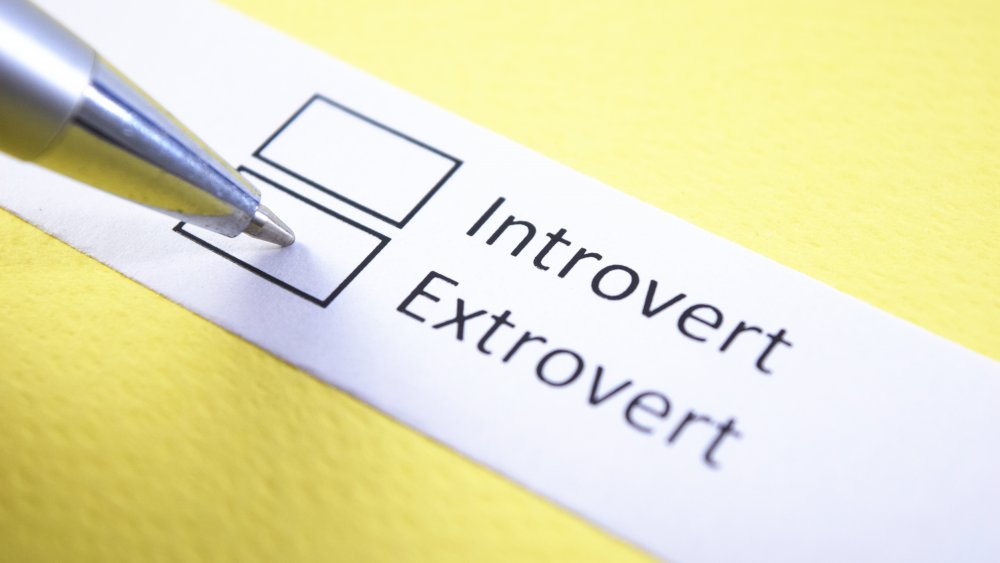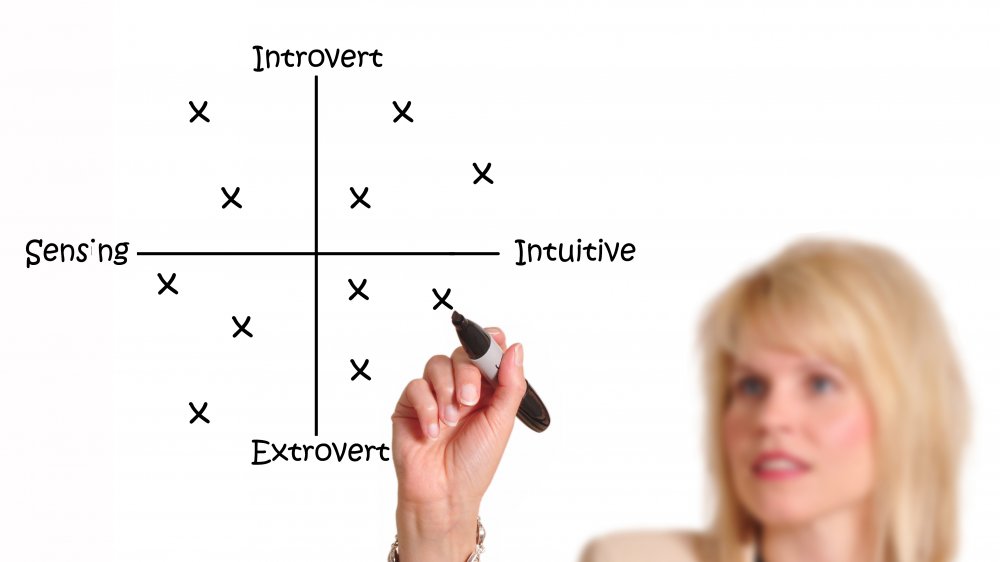The Untold Truth Of The Myers Briggs Test
If you know your INTJ from your ENFP, chances are you're familiar with the MBTI — the Myers-Briggs Personality Type Indicator or MBTI, that categorizes and defines what kind of personality you might have, based on a self-administered test. The quiz (which isn't too different from a typical internet questionnaire), was developed by Isabel Myers and her mother Katherine, who were intrigued by Carl Jung's theory of personality types, and they felt the theory might be useful in real life. The test is made of four different scales: Extraversion – Introversion; Sensing – Intuition; Thinking – Feeling; and Judging – Perceiving (via Very Well Mind). The test, which is available here, yields 16 different personality types based on a person's tendency towards the different characteristics.
About two million people take it annually, officially, at the request of organizations and educational institutions, as well as recreationally, but there is a problem: psychologists say the test is actually meaningless (via Vox). University of Pennsylvania's Adam Grant is a longtime critic of the test and tells Vox that "There's just no evidence behind it. The characteristics measured by the test have almost no predictive power on how happy you'll be in a situation, how you'll perform at your job, or how happy you'll be in your marriage."
The Myers Briggs test has been discredited
In a column published by Psychology Today, Claremont McKenna College psychology professor Ronald E Riggio says that while the test may have been inspired by Jungian theory, its foundation rests on Isabel Myers' interpretation of that theory. Riggio also says there are structural problems with the MBTI, including the fact that it only offers test-takers binary questions – meaning, two choices. If you take the test a few times, and you change a few answers in the extraversion vs introversion section for instance, you go from being an extravert to an introvert. Vox reports that different results have been seen in as many as 50 percent of test takers who fill out the MBTI a second time within a five-week period. The variances, psychologists say, make it difficult to use the MBTI for anything meaningful like determining career choices, or identifying potential hires.
Still, the MBTI has its uses. Riggio writes: "Perhaps the best use for the MBTI is for self-reflection. If used as a starting point for discussing how people vary in their personalities, and emphasizing tolerance for individual differences and taking others' perspectives, then it can be a useful tool. However, it is important that the test administrator caution against over-interpretation of the results, and discuss the limitations of the instrument" (via Psychology Today).

